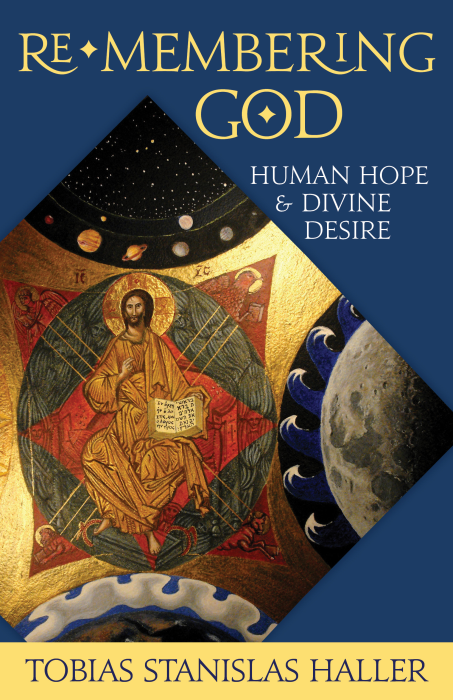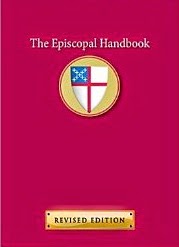Unless the Lord Builds the House...
...their labor is in vain who build it.
Jesus is the only "instrument" of communion, since it is through baptism into his death that we enter the only communion that endures. All other "communions" are merely means to an end -- Jesus Christ is both the instrumental means and the desired end.
To place anything but God in the place of God is idolatry. We are called to be One even as the Son and the Father are One in the Spirit. We are invited into this mystical union as members of Christ's Body — the one Church of which all the baptized are members, in spite of their protests to the contrary. Like it, or, as is sometimes the case, not, we are in this together. The more we act that way, the better it will be for us.
A thought on Trinity Sunday — Tobias Haller BSG








10 comments:
A beautiful thought, beautifully expressed.
I believe that the parishes that maintained diversity of strong opinion about the divisive issues of the day without being rent asunder were able to do so by keeping Christ at the center of their life and worship. I'm reminded of the opening lines of Yeats' poem, "The Second Coming."
Turning and turning in the widening gyre
The falcon cannot hear the falconer;
Things fall apart; the centre cannot hold;
Mere anarchy is loosed upon the world,
Thank you, Tobias. I know sometimes Christians become impatient with taking the time for serious reflection on sacramental theology because it (supposedly) takes time and energy away from doing the mission of the Church (narrowly defined). But it is precisely when our sacramental theology is deep enough to understand such things as the union with Christ in Baptism and Eucharist, and when that is deeply enough ingrained in us, that we don't fly off the handle and get tossed "to and fro" by shallower theological reasoning that leads us into trouble.
Another way of saying it is that the roots of the tree have to be deep enough to withstand the tempests and droughts that come in church life (NB - Psalm 1).
Vicki McGrath+
Great post, Father.
It's interesting that Jesus didn't refer to the apostles as 'Instruments of Communion' (take note primates!).
Rather, he gave us his Spirit so that 'we may dwell in him, and he in us'
The problem as I see it is that much of our ecclesiology talk is all about us. It has so little to do with Jesus as a priori to ecclesiology at all. Increasingly, I find myself deeply troubled by this almost masturbatory communion language, as if communion is something we do rather than a gift Whom we receive. But of course the latter opens up a spaciousness that moves beyond the Church as holder of the life to our being the ones called out to share that life and point out where it is happening in the world. The former seems concerned about maintenance. Hence, my growing sense that the Reformers were correct, the Church is where the "Word is rightly proclaimed and the Sacraments duly administered". The Church is God's action, not our own. We rather respond to His action.
In my mind we're underoing a real but temporary error in the Body, and it isn't pretty. So little beauty, love, or good news.
Hey--now there you go: hold that thought.
Holy simplicity, the sufficiency of Christ.
Christopher, it strikes me that we are back at the same old divide between grace and law that Paul attempted to address in Romans. The pseudo-evangelicals still can't accept the gift without thinking they've earned it somehow, and demand that others follow their programme of proper behavior in order to "merit" grace. Their failure to see grace at work in the lives of faithful, loving couples, in the fruit of their relationships, is the most tragic turn of events. They are still harping on things of the flesh -- and crowing over victory in the flesh no less than the circumcisers -- and obedience to their reading of the law as the sign of God's presence, rather than the spiritual gifts of love, patience, kindness, and so on.
The good news is that others will compare the language of legalism with the language of grace, and see the difference.
But Jesus came and touched them, saying, "Get up and do not be afraid." And when they looked up, they saw no one except Jesus himself alone.
In the midst of the disputations, the verses from Matthew's Gospel at the end of the account of the Transfiguration keep coming to mind.
So, what does that mean in practice, then?
Ah, it is in the practice that the implications become implementations.
My suggestion, as noted earlier, in our present Anglican tumult, is to work towards amending the current proposed draft covenant by deleting paragraph 3.2.5 and its subsections. What remains is then a good articulation of the principle I'm laying out here: that unity, and the commitment to remain united through the sacramental means available to us, is what it means to be "the church." Those who cannot or will not remain together under this non-punitive but more "ontological" understanding, will be welcome back when they return -- but we need never acknowledge ourselves to be separated from them by any real division. One could call this a delusional approach -- similar to the old-line RC concept that once baptized in it one cannot leave "the church" (i.e., the Roman Catholic Church); but actually not unlike current Episcopal understanding that opens the communion rail to all who are baptized. (Some try to restrict this further, on the basis of a House of Bishops statement of some years back, only to those who accept Episcopal doctrine on the Eucharist and who receive communion in their own tradition; I have argued elsewhere that this position paper was transitional, and has no basis in the BCP or Canons, which only mention baptism. Some go further, as you know, and suggest communion of those not yet baptized; but I'm speaking here of actual positions not of suggested ones).
The point is always to act as if things were the way we believe things should be. Let our aspirations, hopes and vision guide us, as we pass through the midst of those who would throw us off the cliff...
Post a Comment